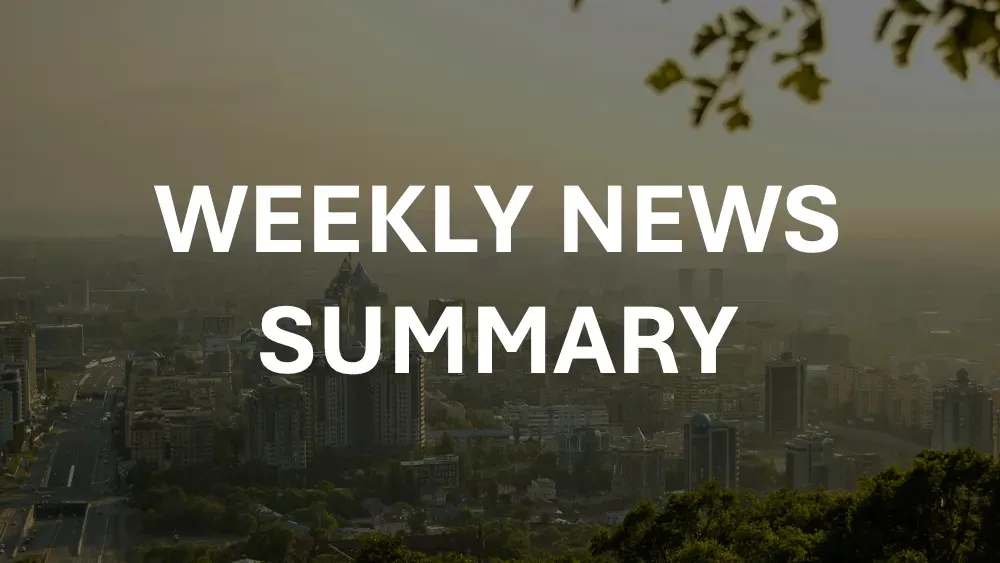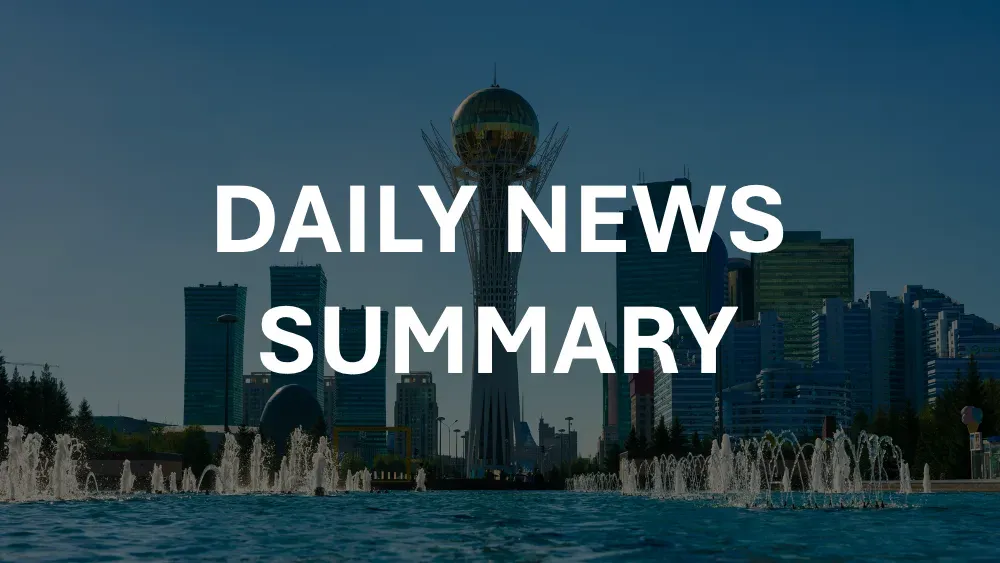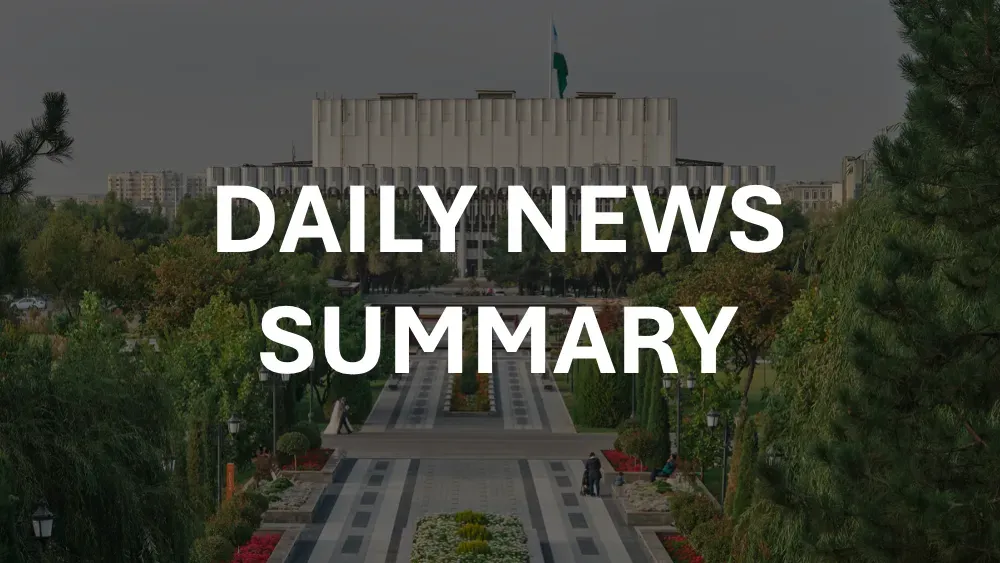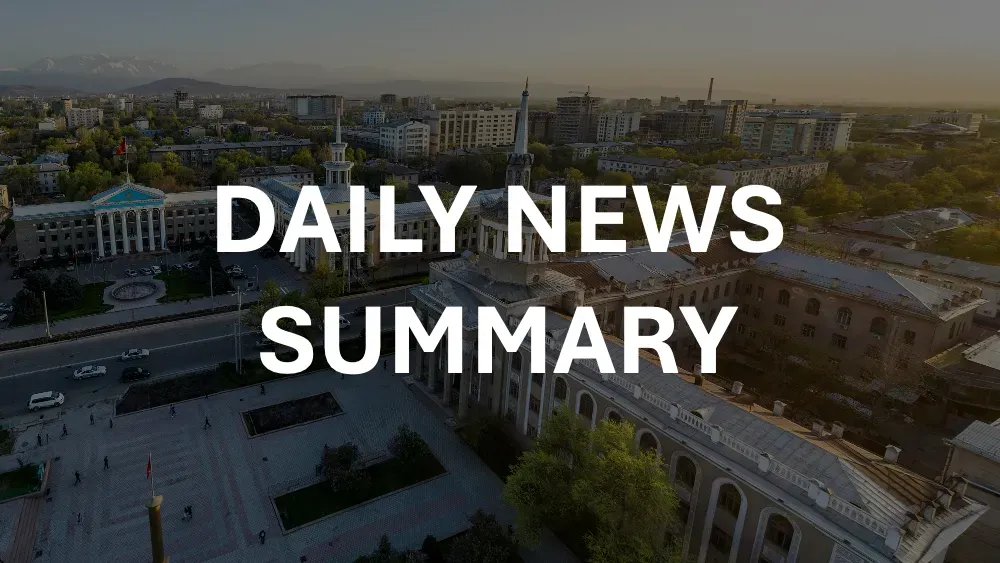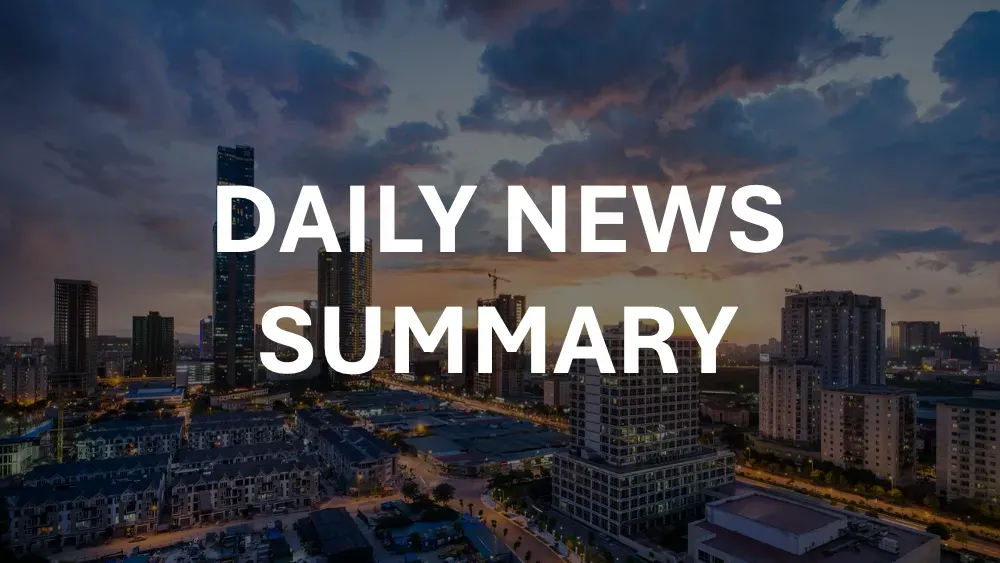This weekly digest showcases just 10 stories. Daily subscribers receive comprehensive intelligence briefs with 40 of the top stories organized by category. Don't miss the stories that matter.
Subscribe to Daily →
September 13, 2025 to September 19, 2025
This week's top 10 stories from Kazakhstan, selected from our daily intelligence briefs.
1. Oil Loadings via Baku–Tbilisi–Ceyhan Resume with Kashagan Crude from Aktau
KazMunayGas said shipments of Kashagan crude via the Baku–Tbilisi–Ceyhan (BTC) corridor have resumed, with 8.8 thousand tonnes loaded at Aktau on September 13 and a further cargo scheduled for September 20. The move reaffirms Kazakhstan’s use of westbound Caspian routes through Azerbaijan to access Ceyhan, providing an alternative to the Caspian Pipeline Consortium route to Russia’s Black Sea.
For producers and traders, even modest volumes signal operational continuity and improve planning visibility for liftings from Aktau and terminal slots at Ceyhan, while helping diversify export risk and preserve output balance at Kashagan during maintenance or disruptions on other corridors.
Local Coverage: inform.kz
From daily brief: 2025-09-18
2. Security Council Orders Systemic Overhaul of Cyber Defenses and Data Protection
Kazakhstan’s Security Council, chaired by President Kassym-Jomart Tokayev, ordered a systemic overhaul of national cyber defenses and data protection following a session that reviewed cyber threats, critical information infrastructure, domestic cybersecurity industry development, and workforce training. Briefings were delivered by Digital Development Minister Zhaslan Madiyev and National Security Committee Chairman Yermek Sagimbayev; Tokayev directed stepped-up action against cybercrime—particularly online fraud—expanded investigative powers for relevant agencies, and tougher penalties for unlawful disclosure of personal data, alongside a public-awareness push on safe online behavior.
The measures are framed as part of Tokayev’s broader objective to build a fully digital state and to mitigate strategic risks through coordinated, systemic responses. For international professionals, the move signals Kazakhstan’s intent to strengthen legal and operational cyber capabilities, increase state control over data security, and potentially expand cross‑sector regulatory and investigative authority—developments that could affect regional cyber cooperation, data-handling practices by foreign firms, and compliance requirements for entities operating in Kazakhstan.
Local Coverage: inform.kz, zakon.kz, aikyn.kz, malim.kz, dknews.kz, egemen.kz
From daily brief: 2025-09-16
3. IFC to Advise on Capital Market Reforms and Financial Sector Upgrades
Kazakhstan’s Financial Market Regulation and Development Agency has signed a letter of agreement with the International Finance Corporation (IFC) to provide advisory support on capital market reforms and broader financial sector upgrades. Concluded during a meeting between Agency Chair (unnamed) and IFC Director for Turkey and Central Asia Wiebke Schlömer, the IFC will prepare recommendations and engage public and private stakeholders on integrating ESG standards, supporting conversion of microfinance institutions into banks, and assisting in rulemaking to deepen local capital markets and diversify financing channels.
The partnership aims to improve corporate governance, expand SME access to credit, and harmonize Kazakhstan’s regulatory framework with international practices to attract foreign investors. By focusing on ESG integration, institutional conversions, and technical rulemaking, the IFC’s advisory role could accelerate market development and enhance the country’s appeal to cross-border capital.
Local Coverage: dknews.kz
From daily brief: 2025-09-13
4. First Digital Nomad Residency Issued as Astana Hub Program Scales to Attract Global IT Talent
Kazakhstan has issued its first Digital Nomad Residency to Senior Analytics & BI Engineer Pavel Filatov, following a January launch of the program by presidential directive from Kassym‑Jomart Tokayev. Administered through the Astana Hub innovation cluster, the pathway streamlines permanent residency for qualified IT professionals after an online application and ministry confirmation of in‑demand skills; more than 270 applications from 20 countries have already been received, led by programmers, cybersecurity, UI/UX and DevOps specialists.
The initiative is paired with a complementary Digital Nomad Visa that allows foreign nationals to work for local or international companies without income verification and to transition to residency, positioning Kazakhstan to attract global IT talent into its rapidly developing tech ecosystem. The first recipient praised the efficient, modern process and the quality of life benefits, underscoring the program’s potential to accelerate talent inflows and strengthen Astana Hub’s role as a regional innovation node.
Local Coverage: egemen.kz
From daily brief: 2025-09-13
5. IAEA Backs Kazakhstan’s Nuclear Power Program with Comprehensive Support Plan
At the IAEA General Conference, Kazakhstan’s Atomic Energy Agency Chairman Almassadam Satkaliyev met with IAEA Director General Rafael Grossi to advance Kazakhstan’s national nuclear power program, including plans to build a nuclear power plant and associated infrastructure. Grossi confirmed the Agency’s commitment to provide “end‑to‑end” assistance—site selection, construction readiness, commissioning, technical missions and departmental cooperation—through a joint roadmap planned for 2025–2027. Discussions also covered workforce training, regulatory frameworks, nuclear safety, and civilian applications of nuclear technology in industry, agriculture and healthcare.
Kazakhstan outlined intentions to form an international consortium for plant construction, initiate new research projects and develop a facility for safe storage of high‑enriched fuel; the parties will also explore a balanced approach to uranium resource management and secure global supplies. The agreement to draft a 2025–2027 roadmap signals coordinated implementation with IAEA technical support and aligns Kazakhstan’s domestic ambitions with international safety and non‑proliferation commitments.
Local Coverage: egemen.kz, inform.kz, dknews.kz
From daily briefs: 2025-09-18, 2025-09-19
6. State-Led Investment Drives Growth as Private Capital Lags and Mining Outlays Fall
Kazakhstan’s GDP expanded 6.5% in August, driven largely by state-led investment in education, manufacturing, transport and utilities, but analysts warn the recovery is becoming dependent on public spending and infrastructure projects. Over the past decade non-extractive sectors have captured 60% of $216.7 billion in FDI, supporting a structural shift: manufacturing’s GDP share rose from 10.2% to 12.4% while mining’s share declined. At the same time mining investment fell 17.9% year‑on‑year—partly reflecting completion of the Tengiz project—creating medium‑term risk if new large projects do not materialize.
Private and bank financing remain muted: banks provide only 3.5% of investment and 67.7% of bank funds flow into construction rather than equipment, which may constrain technological upgrade and productivity gains. Officials, including President Kassym‑Jomart Tokayev, have signaled readiness to offer incentives to attract private and high‑tech investment, while Halyk Finance economist Sanzhar Kaldarov cautions that the “low base” effect is waning and investment momentum could slow toward year‑end.
Local Coverage: aikyn.kz
From daily brief: 2025-09-14
7. Unified E-Procurement Platform Integrates All Public and Quasi-Public Purchasing
Kazakhstan has consolidated state and quasi-state procurement onto a single digital platform, goszakup.gov.kz, effective under the new Public Procurement Law from January 1, 2025, integrating the former zakup.sk.kz and mitwork.kz systems on the Electronic Finance Center’s infrastructure. The platform links to over 20 state information systems (courts, treasury, licensing, debtor and real estate registries) to automate supplier eligibility, tax and court-debt screening, and blacklist checks; authorities say the reform expands transparent access to all regulated procurement types — including national holdings and education-sector catering — to boost competition, curb illicit practices and improve budget efficiency. Global Data Barometer ranks Kazakhstan’s procurement system third worldwide for accessibility and transparency, a benchmark cited in support of the upgrade.
Parallel to procurement centralization, Kazakhstan is advancing a National Project to modernize energy and municipal utilities: 48 pilot projects are moving into implementation, with ten pilots in Karaganda, Pavlodar, West Kazakhstan and North Kazakhstan regions receiving 22.5 billion tenge from the Kazakhstan Housing Company through municipal bond purchases; the Development Bank is reviewing eight projects totaling 118.4 billion tenge. Authorities are building a domestic supplier registry — mapping 669 EPC contractors and 2,700 product positions worth 2.2 trillion tenge — and preparing an electronic procurement with offtake options to localize production; a unified “Smart Turmys” housing-and-utilities platform with potential AI integration is also under development, and regional needs for 2026–2029 will be finalized by local governments and line ministries.
Local Coverage: egemen.kz, inform.kz, aikyn.kz, dknews.kz
From daily briefs: 2025-09-13, 2025-09-18
8. Government Unveils 2025–2027 Agrifood Investment Plan to Curb Imports and Boost Exports
Kazakhstan’s Agriculture Ministry has unveiled a 2025–2027 “Investment-by-Order” plan comprising 202 agrifood projects across 12 sectors aimed at cutting import dependence and shifting toward export growth. The programme targets products with high import reliance—poultry (current domestic supply 79%), cheese and curd (52%), sugar (33%), sausages (60%) and fish products (67%)—while expanding grain, potato, fruit/vegetable processing, leather and wool processing, new dairy farms, greenhouses and storage. Officials expect poultry to reach self-sufficiency this year and anticipate faster dairy substitution supported by subsidized 2.5% loans; 49 new farms are already operational and 37 more are due by end‑2025.
Policy-makers link the plan to inflation control: the Trade Ministry says imported brands make up 16.5% of socially significant foods (up to 50% in border regions) and contributed 32% of six‑month inflation in that basket, with 97% of those imports from EAEU countries. The initiative includes partnerships (eg. PepsiCo, Iran’s Solico), 27 additional processing projects, and digital retail-flow pilots to better align regional production with demand. Vice‑Minister Ermek Kenzhekhanuly and Deputy PM Serik Zhumangarin emphasized using proven technologies and assessing water/raw‑material bases to ensure food security, price stabilization and eventual export orientation.
Local Coverage: egemen.kz, dknews.kz
From daily briefs: 2025-09-13, 2025-09-14
9. Wide-Ranging Reform Package Channels Finance to Real Economy, Builds AI‑Driven Regulation and Logistics Upgrades
A broad reform package refocuses Kazakhstan’s financial system and industrial policy to channel liquidity into the real economy, establish high‑tech funding, and accelerate digitization and logistics. Key measures include a new Banks Law, up to $1 billion from the National Fund to support high‑tech industries, and creation of a special‑status Alatau City near Almaty to host a financial‑innovation hub, crypto–fiat rails and a State Digital Assets Fund. Industrial priorities target rare‑metals processing and deeper hydrocarbons refining, while a government commitment aims to complete full digitization of geological data and build an AI‑based Big Data system by end‑2026.
The package also allocates KZT 1.2 trillion for agriculture over three years to finance 200+ projects with subsidized loans and guarantees up to 80%, introduces e‑based land allocation, and reforms tax administration to deploy AI. Transport and logistics upgrades include the Bakty–Ayagoz railway, Sekseuil–Beineu highway, a unified Smart Cargo customs platform by 2026 and plans for a national air cargo carrier to double freight throughput. Complementary measures cover tourism, energy‑efficiency and major water and construction platforms, signaling a coordinated push to modernize infrastructure, boost exports and digitally govern strategic sectors.
Local Coverage: egemen.kz
From daily brief: 2025-09-17
10. Tax Code Overhaul Eases Collections and Incentivizes Investment with Digital Administration
Kazakhstan’s Finance Ministry and State Revenue Committee unveiled a proposed Tax Code reform designed to boost transparency, predictability and digital administration while directing tax incentives toward strategic sectors. At briefings in Mangystau with Atameken, officials said the rewrite expands deductible costs for exploration and production, introduces reliefs for capital‑intensive and processing projects, adjusts gas pricing rules and lowers the rent tax for oil and gas companies—measures intended to support chemical and machinery industries as part of diversification away from hydrocarbons.
The reform also adopts a softer, risk‑based collections approach: small tax debts will no longer automatically trigger bank account freezes, a change aimed at reducing compliance burdens and improving state–business relations. While no effective date was given at the briefing, the package emphasizes digital administration and targeted incentives as instruments to attract investment into manufacturing, resources and new projects.
Local Coverage: dknews.kz, inform.kz
From daily brief: 2025-09-13
About This Weekly Digest
The stories above represent the most significant developments from Kazakhstan this week, selected through our AI-powered analysis of hundreds of local news articles. Our ranking system evaluates each story based on:
• Impact on international interests - How the story affects diplomatic, business, and development activities • Strategic significance - The story's importance for understanding Kazakhstan's trajectory and regional dynamics
• Economic and political weight - The scale of economic impact or political change involved • Relevance to foreign professionals - Direct implications for international organizations and businesses operating in Kazakhstan
Stories are drawn from our daily intelligence briefs, which synthesize reporting from Kazakhstan's leading news sources to provide comprehensive situational awareness for international decision-makers.
These weekly highlights are a small sample of what's happening. Daily subscribers get comprehensive briefings with 40 top stories that connect the dots between events, track developing stories, and provide the context you need for informed decision-making.
Upgrade to Daily →
